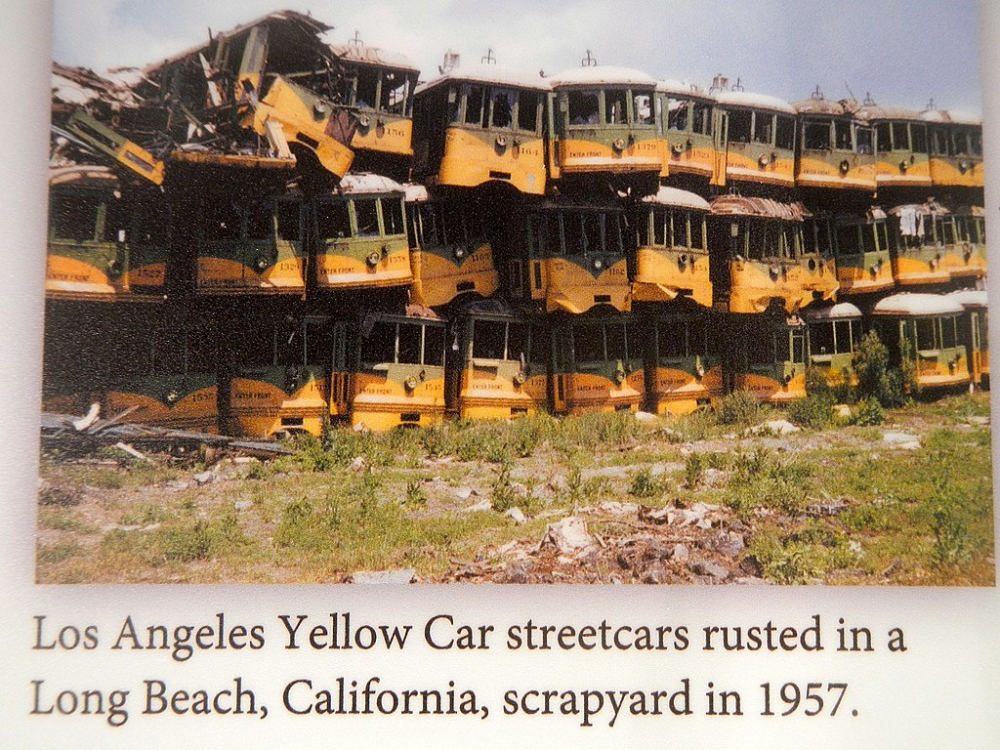
Tracks were ripped up overnight, power lines scrapped, and streetcars replaced with buses
Los Angeles, CA — Think Los Angeles chose cars over trains? Think again. As Russell Mokhiber revealed in Corporate Crime and Violence, the city’s world-class electric train system—once the largest globally, linking 56 towns and carrying 80 million passengers yearly—wasn’t abandoned by public choice but dismantled by corporate design.
Before World War II, streetcars and brollies crisscrossed nearly every U.S. city, many owned by electric utilities to boost power sales. But in 1935, Congress’s antitrust laws forced these companies to sell off transit holdings amid the Great Depression. Enter General Motors (GM), desperate to revive auto sales. Mokhiber writes, “GM knew that without efficient rail systems, city-dwellers would need alternatives—so they set out to destroy them.”

In 1932, GM launched United Cities Motor Transit (UCMT), buying and converting rail lines to buses in Ohio and Michigan, then mandating GM-only purchases upon resale.
After a failed attempt in Portland—thwarted by the American Transit Association—GM pivoted. Partnering with Omnibus Corporation, it gutted New York’s massive trolley network in just 18 months.
By 1937, GM escalated nationwide, using National City Lines (NCL) as a front. Joined by Greyhound, Firestone, Standard Oil, Phillips Petroleum, and Mack Manufacturing, NCL raised $10 million to buy and dismantle transit systems in over 45 cities—New York, Philadelphia, St. Louis, Los Angeles among them.
Tracks were ripped up overnight, power lines scrapped, and streetcars replaced with buses. By war’s end, NCL had slashed a 40,000-strong streetcar fleet to 5,000.
Suspicion mounted. Internal documents later revealed the companies anticipated losses on NCL but banked on future profits from bus sales. Contracts locked transit firms into buying only from investors, banning electric streetcars. In 1949, a federal court convicted GM and its partners of antitrust violations under the Sherman Act. The punishment? A mere $5,000 fine per company, with guilty executives paying $1 each.

Mokhiber’s verdict is stark: “The people of L.A. had no say.” Once the rails were gone, the conspirators dumped their stocks, leaving cities car-dependent and smog-choked—a legacy still felt today.
Rails to Roads: Corporate Conspiracy Shaped America’s Cities (Feb. 23, 2025)